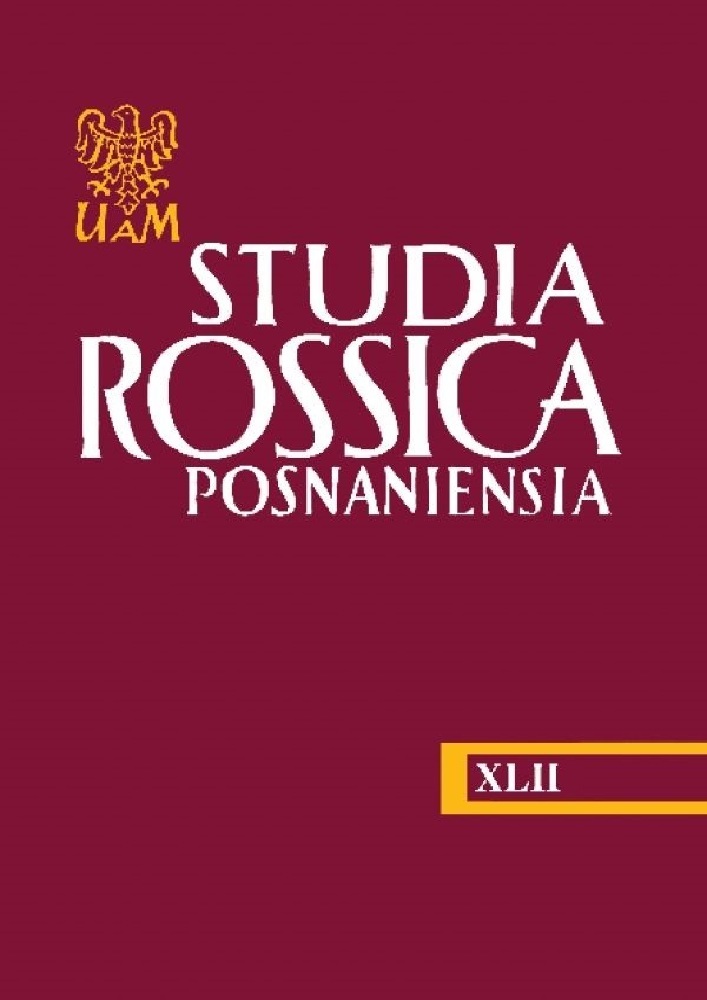Abstract
Among the issues, themes and contributions which Anton Chekhov undertook in his works, one may also find the broadly-understood issue of an individual's place in the course of historical events. In this case, and others like it, this writer's opinion stands out among the works of other Russian writers. This is related to the fact that the author of The Steppe is convinced that the individual, and his conscious behaviour, contributes to the behaviour of a group and society. This is in contrast to the reasoning of most Russian writers of those times; however, it proves to be characteristic of Chekhov's thinking.Literaturhinweise
Grossman W., Życie i los, przeł. J. Czech, Warszawa 2011.
Ksenicz A., Anton Czechow – nieco inaczej o sobie i innych, [w:] tegoż, Słowiański wielogłos, czyli od Antona Czechowa do Jerzego Harasymowicza, Zielona Góra 1999, s. 5–30.
Ksenicz A., Czechowowskie przemiany wewnętrzne, [w:] tegoż, Ścieżkami bohaterów Antona Czechowa, Zielona Góra 2007, s. 173–192.
А. П. Чехов в воспоминаниях современников, pед. В. Вацуро и др., Москва 1986.
Булгаков C., Чехов, как мыслитель, Киев 1905.
Гурвич И., Проза Чехова. (Человек и действительность), Москва 1970.
Катаев В., Спор о Чехове: конец или начало?, [w:] Чеховиана. Мелиховские труды и дни, Москва 1995.
Петров Г., Евангелие, как основа жизни, Санкт-Петербург 1900.
Собенников А., Библейский образ в прозе А. П. Чехова (аксиология и поэтика), [w:] О поэтике А. П. Чехова, Сборник научных трудов, pед. кол. Г. Чернышова и др., Изд-во Иркутского университета, Иркутск 1993, s. 24–25.
Чехов А. П., Полное собрание сочинений и писем в тридцати томах. Письма в двенадцати томах, Москва 1974–1983.
Lizenz
Die Veröffentlichung von Texten geschieht in Übereinstimmung mit der Creative-Commons-Lizenz:
Namensnennung-Nicht kommerziell-Share Alike 4.0 International - Creative Commons.

